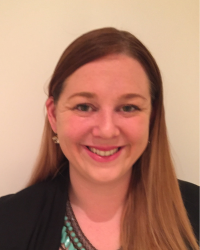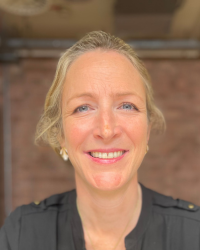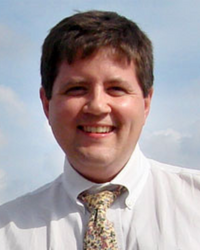Study options
- Starting in
- September 2025
- Location
- Distance Learning
- Fees
- Home: £4,300
Overseas: £9,200
EU/EEA/Swiss students
The course fee is charged per annum for 2 years. Note that fees may be subject to an increase on an annual basis - see details on our tuition fees page.
What you'll study
Resuscitation medicine is arguably evolving into a subspecialty of medical care. This course aims to provide practising doctors, nurses, paramedics and physician associates with invaluable and thorough expertise in this field.
The Emergency and Resuscitation Medicine PGDip at Queen Mary has an excellent reputation in emergency medicine, trauma surgery and critical care, and you’ll be taught by world-leading experts recognised for their cutting-edge research. You will be taught a wide range of fascinating topics such as diagnosis, pathophysiology, resuscitation and toxicology, while fine-tuning your existing knowledge on research methodology, legislation and ethics.
Students* gave this programme a score of 100% for all aspects of teaching, and 90% said that they felt better prepared for their future career due to taking the course. Students* gave this course a 90% overall satisfaction rating.
*Students who completed the Postgraduate Taught Experience Survey (PTES) 2024
Find out what it's like to study with us by accessing a range of lectures from throughout the programme in the Emergency and Resuscitation Medicine taster course:
Structure
- 6 compulsory core taught modules
- 2 compulsory elective taught modules
For modules 6 and 8 in the second year, you will have the choice between two elective modules for each.
Module 6 is a choice between 'Diagnostic Tools in Critical Illness' and ‘Tactical Medical Care’:
'Diagnostic Tools in Critical Illness' focuses on the key diagnostic modalities used to improve care in critical illness, such as diagnosing the cause of shock and to guide the resuscitation. We start by studying blood gas analysis, then ECGs, then a brief overview of radiographs before moving to focus on point of care ultrasound for around two thirds of the module. Point of care ultrasound represents the most significant development in early diagnosis in the field of resuscitation medicine. Its use enables clinicians to define shock syndromes at presentation, to identify many key conditions (such as obstructed renal tract, ruptured ectopic pregnancy, intra peritoneal bleeding in trauma shock) and to improve procedural safety. It may be performed similarly pre- and in-hospital, so offering a significant improvement in prehospital care.
‘Tactical Medical Care’ is designed for healthcare professionals who work in tactical roles, the military, work closely with the military, work in expedition medicine or work in the global health/volunteer sector. This module includes talks on global health, mass casualty events, medicine in extreme climates/environments, tactical medicine, event medicine, procedures/techniques used in battlefield injuries, natural disasters and terror attacks. It is delivered by a diverse faculty of international experts drawn from a wide range of careers.
Module 8 is a choice between 'Pre-hospital Care and Mass Casualties’ or ‘Paediatric Emergency Medicine’*.
Whichever modules you take, the qualification is a masters in Emergency and Resuscitation Medicine, and we will provide a list of your module choices for future employers if required.
*Please note that if you wish to focus completely on the paediatric side of emergency medicine, we offer an MSc, PGDip or PGCert in Paediatric Emergency Medicine, in collaboration with global paediatric educational organisation Don't Forget The Bubbles.
Compulsory/Core modules
This module will detail the burden of trauma on society and the national / systems wide approach to trauma care. We then discuss the assessment, classification, resuscitation and treatment of major trauma system by system. In the latter part of the module we look at the cellular and metabolic affects of trauma.
In this module you will be taught basic skills required for academic medicine, including how to read a paper, how to critically appraise medical literature, how medical research is designed, statistical analysis, and research methodology. You will gain experience in searching the medical literature to answer specific questions, be introduced to a variety of literature databases and develop the necessary skills to evaluate the scientific literature. With the emphasis on personal research, you gain awareness of current legislation and ethics surrounding clinical research. The module will conclude with you being shown how to submit your work for publication and present your research for differing audiences. Your learning will be supported by a series of online lectures and discussion groups.
In this module you will learn how to identify patients in shock, evaluate which patients require resuscitation, and examine tools by which this is achieved. You will review the most common causes of shock and learn how to classify shock syndromes, maximise the cardiovascular response to shock, choose fluid therapy (dose/type) for resuscitation, and select which inopressors to apply. You will develop further insights into cardiovascular physiology and have a clear and in depth understanding of what is meant by resuscitation. You will learn via a series of online lectures delivered by experts in the field and will participate in discussion groups.
This module will equip you with knowledge of oxygen delivery, advanced airway care, respiratory support, procedural sedation/analgesia, and state of the art treatment of cardiorespiratory arrest in adults and children. In the first part of the module you will review the mechanisms for respiratory failure, non-invasive ventilation, and advanced airway care. You also will learn best practice in acute care analgesia and sedation. In the second part of the module, you will focus on the best practice care for patients in cardiopulmonary arrest in a wide range of scenarios. In the final section of the module, you will focus on the critically ill child and mother.
In this module you will review a wide range of acute medical disease processes, developing knowledge about their pathophysiology and clinical presentation. You will cover topics including acute coronary syndromes, diabetic and non-diabetic endocrine emergencies, acute non-traumatic and traumatic neurosurgical emergencies, and infectious disease and tropical medicine. You also will develop the skills required to manage these diseases, by evaluating clinical scenarios. You will learn via a series of online lectures delivered by experts in the field and will participate in discussion groups.
This module provides you with an understanding of diagnostic work up in the early phases of resuscitation. You will improve your ability to interpret bed side metabolic parameters provided by blood gas analysis, and your ability to interpret the chest radiograph and acute computed tomography imaging as applied to acute care in critical illness. You will also gain an understanding of the role of focused ultrasound and echocardiography in the diagnosis of acute illness and guiding resuscitation. You will learn via a series of online lectures delivered by experts in the field and will participate in discussion groups.
In this module you will learn about acute toxicology as applied to critical illness. You will gain an understanding of toxidromes, diagnosis of poisoning, and the approach to both supportive and toxin specific care. Importantly, you also will learn about the decontamination of patients and safe working in a CBRN (chemical, biological, radiological and nuclear) environment. You will learn via a series of online lectures delivered by experts in the field and will participate in discussion groups.
Compulsory/Core Elective modules
In this module you will learn about a wide range of topics within the pre-hospital care environment, including scene management, critical care interventions, and mass casualty events. Please note, this module does not seek to provide training in pre-hospital care, but rather to provide an understanding of specific issues relevant to the pre-hospital environment. You also will gain an understanding of specific issues faced by those who work in the pre-hospital environment. Hospital-based practitioners will gain knowledge regarding the types of care that can be provided pre-hospital and how mass casualty events are managed.
Students will learn about a wide range of topics within the field of paediatric resuscitation, including airway management, critical care interventions, and common paediatric emergencies. Please note, this module does not seek to provide training in paediatric emergency medicine, but rather to provide an understanding of specific issues relevant to paediatric resuscitation. Hospital based practitioners will gain knowledge regarding the resuscitative management of common paediatric emergencies, including issues specific to looking after children such as distraction techniques, and safeguarding.
Assessment
Assessments are comprised of written assignments, Multiple Choice Question (MCQ) quizzes and short recorded presentations
—I really enjoyed the modules for shock and cardiac arrest and I benefitted a lot from the ultrasound lectures and the diagnostic tools and critical illness module. Overall, this course has been incredibly relevant to my work in the emergency department and I'm able to incorporate the knowledge and skills obtained from this course directly into my practice.
Zara Rahman (Resuscitation Fellow), MSc Emergency and Resuscitation Medicine, 2021
Teaching
This course has been developed and is taught by practising professionals and industry experts. In addition to a series of online lectures from academics, you’ll gain invaluable insight from guest speakers and develop communication skills in interactive seminars and lively group discussions.
Each 15-credit module consists of approximately 20 one-hour pre-recorded lectures and linked one-hour tutorials with two or three lectures and tutorials delivered each week. Each module offers around 40 hours contact time and 110 hours self-directed study.
You’ll take an active role in your own learning by reading designated material, producing written assignments and completing projects.
Since the programme is delivered entirely online (aside from optional summer school), you must ensure that you have access to a stable internet connection. It is important to note that poor internet connection will not be a reason for granting extenuating circumstances in the event you are unable to submit coursework or take an exam.
Blizard Institute distance learning (online) students* gave their experience a score of 99% for overall satisfaction.
*Students who completed the Postgraduate Taught Experience Survey (PTES) 2024
Where you'll learn
Facilities
- Access to Queen Mary’s dedicated online portal, QMplus
- Supplementary reading and a selection of relevant journal articles
- Student Café — this area of the site allows pictures and questions or messages to be posted for discussion within the group
- Access to our campus facilities if you decide to visit at any point during your course
- Watch our video to discover online study at Queen Mary
About the Institute
Blizard Institute
The Blizard Institute is the largest institute of the Faculty of Medicine and Dentistry. Our research and education span broad areas of modern biomedicine, with particular expertise in cell biology, genomics, immunology, neuroscience, primary care, population health and trauma sciences.
Our research puts Queen Mary joint seventh in the UK (REF 2021). We work closely with linked NHS hospital trusts which means that the School’s research and teaching is informed by an exceptionally wide-ranging and stimulating clinical environment.
Barts Health NHS Trust is home to:
- One of the capital's leading trauma and emergency care centres in the UK (approaching 1,000 attendances daily)
- Europe’s largest Trauma Centre
- Europe’s busiest Heart Centre.
Queen Mary University is also part of the prestigious Russell Group - a body of leading UK universities dedicated to research and teaching excellence.
Career paths
The part-time nature of this course allows you to apply your knowledge directly to your practice as a doctor, nurse, paramedic or physician associate.
Whichever modules you take, the qualification is a masters in Emergency and Resuscitation Medicine, and we will provide a list of your module choices for future employers if required.
Jonny Todd (Paramedic), MSc Emergency and Resuscitation Medicine, 2023
- 96% of Blizard Institute postgraduate-taught graduates are in employment or further study (2020/21)
- 98% of Blizard Institute postgraduate-taught graduates are in highly skilled work or graduate study (2020/21)
- £47k is the median UK salary of Blizard Institute postgraduate-taught graduates (2020/21). 87% earn above this.
—The programme has undoubtedly changed my approach to patient care and clinical decision-making. The content influences my practice and discussions on a daily basis and I feel as though I can provide a much higher standard of patient care as a result. In my new role, I will be supporting the education and clinical development of our clinical staff and the programme really helped me to get to this point. I regularly recommend the programme to anyone interested in further study and personal development and will continue to do so.
Jonathon Todd (Paramedic), MSc Emergency and Resuscitation Medicine, 2023
Fees and funding
Part-time study
September 2025 | 21 months
- Home: £4,300
- Overseas: £9,200
EU/EEA/Swiss students
Funding
There are a number of ways you can fund your postgraduate degree.
- Scholarships and bursaries
- Postgraduate loans (UK students)
- Country-specific scholarships for international students
Our Advice and Counselling service offers specialist support on financial issues, which you can access as soon as you apply for a place at Queen Mary. Before you apply, you can access our funding guides and advice on managing your money:
Entry requirements
UK
Degree requirements
Additional information
For doctors:
- A medical degree (non-UK degrees marked on a grading scale must be equivalent to UK 2:2 degree)
- One or more years’ basic training in emergency medicine/anaesthesia/general medicine/cardiology/acute surgery/intensive care medicine/pre-hospital care. Intern/house officer/FY1 pre-registration experience is not counted as basic training.
- Current employment in emergency medicine, critical care, acute medicine, observation medicine or pre-hospital care. Part time work of at least two days per week is accepted.
For nurses:
- An undergraduate degree at 2:2 or above. Applicants with academic study slightly below this level will be considered on an individual basis if there is very strong evidence of suitable clinical experience in a relevant medical field. For example, nursing professionals with non-honours degrees or diploma/foundation degrees but who come with extensive clinical experience.
- Three years’ experience in emergency or critical care nursing
For paramedics:
- A degree in paramedic science at 2:2 or above. Applicants with academic study slightly below this level will be considered on an individual basis if there is very strong evidence of suitable clinical experience in a relevant medical field. For example, Paramedics with non-honours degrees or diploma/foundation degrees but who come with extensive clinical experience.
- Three years’ experience working as a paramedic OR one year’s experience plus at least 12 months experience working as a critical care paramedic or in a dedicated HEMS system.
For Physician's Assistants/Associates:
- A degree in this area at 2:2 or above. Applicants with academic study slightly below this level will be considered on an individual basis if there is very strong evidence of suitable clinical experience in a relevant medical field.
- Three years' experience with at least 2 years in emergency medicine/anaesthesia/general medicine/cardiology/acute surgery/intensive care medicine/pre-hospital care. Up to 2 years from previous paramedic/nursing experience could be included.
Find out more about how to apply for our postgraduate taught courses.
International
English language requirements
The English language requirements for our programmes are indicated by English bands, and therefore the specific test and score acceptable is based on the band assigned to the academic department within which your chosen course of study is administered. Note that for some academic departments there are programmes with non-standard English language requirements.
The English Language requirements for entry to postgraduate taught and research programmes in the Blizard Institute falls within the following English band:
Band 4: IELTS (Academic) minimum score 6.5 overall with 6.0 in each of Writing, Listening, Reading and Speaking
Please note, there are some postgraduate programmes with non-standard English language requirements in this Institute.
We accept a range of English tests and qualifications categorised in our English bands for you to demonstrate your level of English Language proficiency. See all accepted English tests that we deem equivalent to these IELTS scores.
Visas and immigration
Find out how to apply for a student visa.





